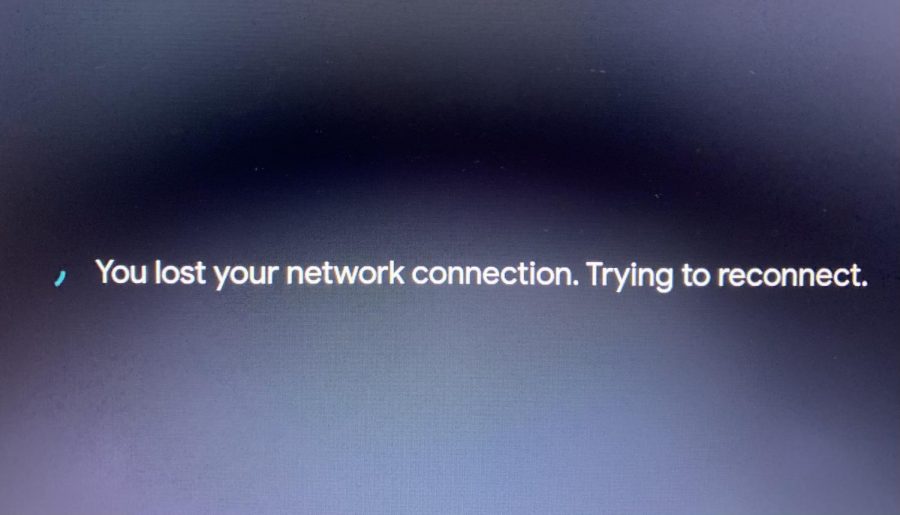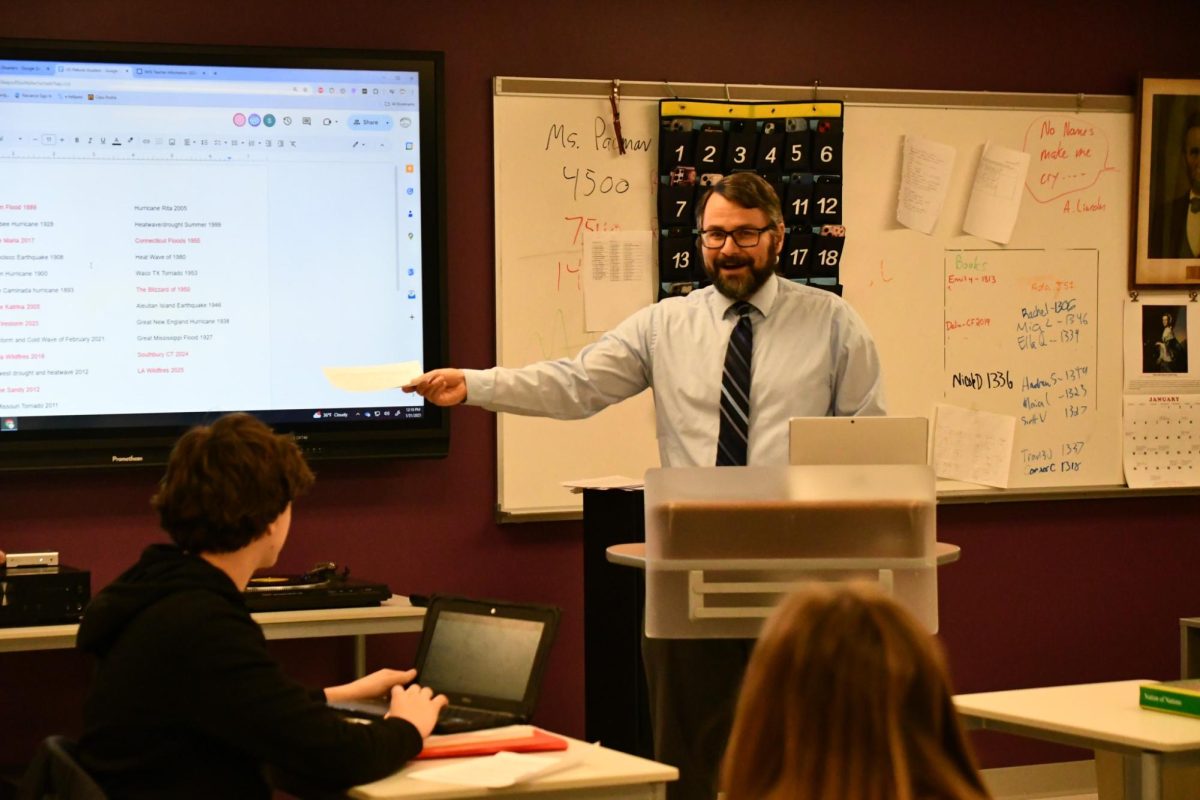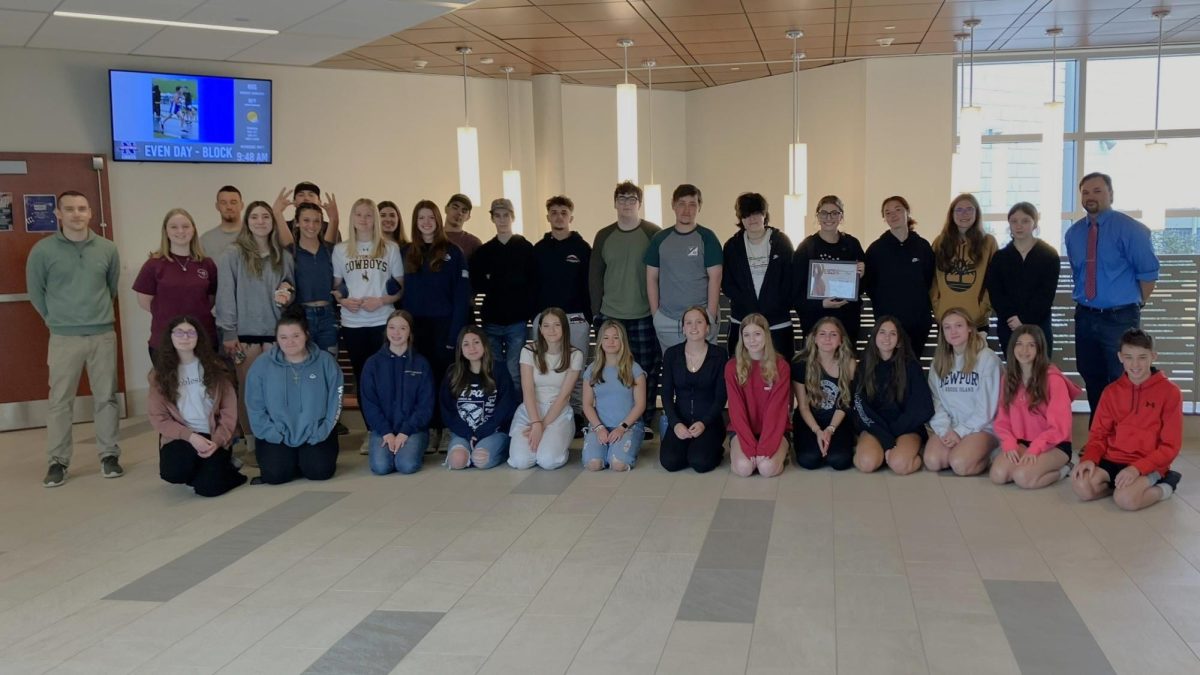Chromebook Crashes a Frustrating Reality of Online Learning
Nonnewaug students are used to seeing a screen like this on Google Meets, which disrupts their experience in class.
February 3, 2021
WOODBURY — Over the past month, students engaging in online learning have experienced repeated losses of internet connection and other technical difficulties with their Chromebooks. These issues have kept students from joining Google Meets, participating in classes, and getting all of their work done on time.
Since Nonnewaug students returned from winter break Jan. 4, many have experienced technical difficulties while attending virtual classes on their Chromebooks. There have been previous instances of widespread connection issues since students transitioned to fully remote learning, but never has it been this disruptive or affected so many people at once.
It seems everybody knows somebody who has had his or her computer shut down without warning. Students are regularly kicked out of Meets due to poor connection, and websites and PDF files won’t load or give students access, all contributing to the already existing issues that students have been seeing for months.
“My screen will randomly turn black while I’m in class, and everything will shut down,” said junior Brendan Burke. “My volume will cut out, and I can’t open any other tabs while I’m on a Meet.”
At first, many believed that it was their own Chromebook’s individual problem, or a complication with the internet in their home. However, as word spread and more students began experiencing difficulties, it became clear that this issue was much bigger.
“My WiFi works perfect; it’s brand new,” said Burke. “My Xbox, the phones at my house, they haven’t had any problems. It’s only my Chromebook that is so slow, it’s hard to work sometimes.”
These connection problems make testing and lecturing nearly impossible, since students are routinely kicked out and miss important information. When this happens, they can either ask for information to be repeated, thus stalling learning altogether, or join back silently, say nothing, and perhaps miss a vital discussion.
Teachers have voiced their frustration over these complications and how they are affecting performance in the classroom.
“You see kids go in and out, three, four, even five times in a single Meet,” said English teacher Benjamin Guerette. “It’s not specific people either; everyone is falling victim to it. If you’re lucky, students will keep coming back [and] push through, but sometimes after a student has been kicked out of a class twice, they will just give up.”
Luckily, the hard work done by Nonnewaug’s IT department has made it possible to more or less identify the root of the problem.
“Sometimes these things will be the result of a problem with Google, a glitch caused by so many people across the country logging on at once,” said Maureen Vint, Nonnewaug’s library media specialist. “Other times it can be a simple case of a computer’s memory being full.”
No matter what is to be blamed for Chromebooks’ performance as of late, Vint and the IT department have outlined a protocol for all students in the event of a device experiencing issues with connectivity or efficiency.
There are individual precautions to be taken first, such as disconnecting Bluetooth devices and clearing browsing data, and if these fail, there is always the option of allowing IT to work on the Chromebook remotely. All details and steps of this protocol are available on the whole-school Google Classroom.
Vint hopes that with this new shift back to in-person learning, it will be easier to combat tech issues.
“These things come and go, but it will be so much easier to overcome these problems in-person,” Vint said. “Before, most of the work and responsibility to fix these things was put on the students. Now, they can just come down to the library and get the problem accessed.”
With students in classrooms once again, slow internet connections and Google Meets cutting short will hopefully soon become a thing of the past.



















